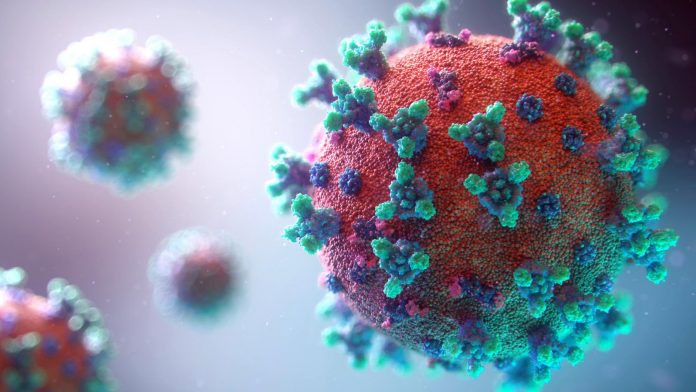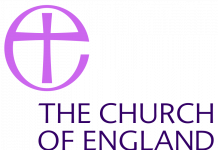A letter to the faithful from the Colorado bishops on COVID-19 vaccines
The bishops of Colorado affirm that the use of some COVID-19 vaccines is morally acceptable under certain circumstances. The development and utilization of vaccines to eradicate certain infectious diseases is a remarkable advancement in medical technology. The Catholic Church supports the morally legitimate development of vaccines to eliminate suffering and to promote human dignity and the common good. Considering the worldwide impact of COVID-19, vaccines for this virus seem to be especially necessary and urgent.
At the same time, we must remember that a good end cannot justify evil means. Vaccines need to be developed according to ethical criteria. Human cell lines that come from aborted fetuses should not be used in the design, development, production, or lab testing of vaccines. The development of vaccines and other medicines using aborted fetal cells is ethically unacceptable. It offends the dignity of the preborn aborted baby and his or her family, as well as the dignity of the medical vocations of doctors and scientists. We affirm the Church’s teaching that “the corpses of human embryos and fetuses, whether they have been deliberately aborted or not, must be respected just as the remains of other human beings.” 1The ethical problems with regard to “cooperation in evil” are important to consider in accepting or promoting any vaccine.2
The Catholic Church teaches that it is morally permissible to seek and receive a vaccine that has not been ethically developed, when there are no other alternatives and there is a serious risk to one’s health, and provided that any immoral cooperation with evil is excluded.3 The Pontifical Academy for Life states that “all clinically recommended vaccinations can be used with a clear conscience and… the use of such vaccines does not signify some sort of cooperation with voluntary abortion.” 4 In the case of a global pandemic, the Catholic commitment to promoting the common good includes considering the health and safety of others. However, if individuals have serious moral objections or health concerns about vaccines, those concerns should be respected by society and government, and those individuals should not be forced into vaccination, contrary to their conscience. The government should not impose the COVID-19 vaccines on its citizens.
The rapid spread of the COVID-19 pandemic has caused many countries to expedite the development of a vaccine. Several different vaccines have been created in an ethical manner, while others have unethically used aborted fetal cells in their design, development, production and confirmatory lab tests. The Charlotte Lozier Institute, a national pro-life research nonprofit, has provided a helpful list of all vaccines being developed, indicating which are morally compromised. We encourage our community to review that list.5
Because of medical advancements, the development of vaccines no longer requires the use of human cells. Many vaccines are now created using no cells, or cells from animals, insects, chicken eggs, or yeast. In the case of COVID-19, eight vaccines were developed by the United States’ “Operation Warp Speed” and six of those vaccines do not use aborted fetal cells, including vaccines from Pfizer and Moderna that will soon be available.
In the case of the Pfizer and Moderna COVID-19 vaccines, their use is morally acceptable since neither company used fetal cell lines from an aborted baby at any level of design, development, or production. However, we must also acknowledge that these two vaccine options are not untouched by abortion, as both relied on fetal cells from an aborted baby for one of the confirmatory lab tests. In our current circumstances, when better options are not available, the use of the Pfizer and Moderna vaccines remains a morally valid option. On the other hand, vaccines such as AstraZeneca-Oxford use aborted fetal lines in design, development, production, and testing, and therefore are not a morally valid option because better options are available.
Catholics have the duty to use vaccines that respect human life, when they are available. We are thankful that many of the companies and countries working to protect human life and health from COVID-19 are also considering the ethical development and trials of their vaccines.
Sincerely yours in Christ,
Most Reverend Samuel J. Aquila
Archbishop of Denver
Most Reverend Stephen J. Berg
Bishop of Pueblo
Most Reverend Michael J. Sheridan
Bishop of Colorado Springs
Most Reverend Jorge Rodriguez
Auxiliary Bishop of Denver
1 Congregation for the Doctrine of the Faith, “Instruction on Respect for Human Life in its Origin and on the Dignity of Procreation Replies to Certain Questions of the Day,” accessed December 7, 2020, Vatican.va, 1:4.
2 Congregation for the Doctrine of the Faith, “Instruction Dignitas Personae on Certain Bioethical Questions,” accessed December 7, 2020, Vatican.va, 32.
3 “Moral Reflections on Vaccines Prepared from Cells Derived from Aborted Human Foetuses,” Pontifical Academy for Life, June 2005.
4 “Note on Italian Vaccine Issue,” Pontifical Academy for Life, July 31, 2017.
5 See the chart provided by the Charlotte Lozier Institute: COVID-19-Vaccine-Candidates-and-Abortion-Derived- Cell-Lines.pdf (pcdn.co), accessed December 11, 2020: https://s27589.pcdn.co/wp-content/uploads/2020/12/COVID-19-Vaccine-Candidates-and-Abortion-Derived-Cell-Lines.pdf










